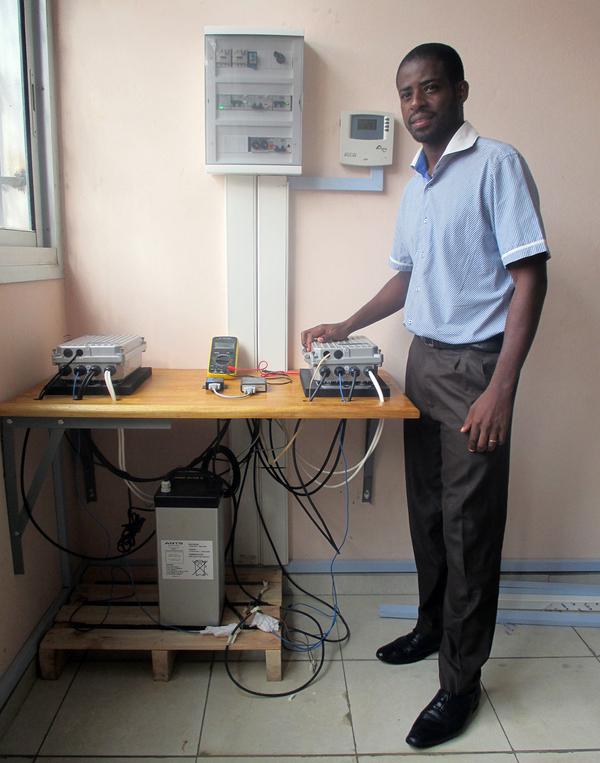Installation of a back-up generator being tested at CURES

© 2014 EPFL
As part of the project to develop a back-up generator system that also stabilizes the power grid of a hospital, a pilot installation is currently being tested in the CURES centre (Yaoundé, Cameroon).
This will allow, subsequently, considering an appropriate solution for district hospitals whose problems and needs have been studied in detail. It also helps secure the electrical equipment of the CURES laboratory, despite the often failing network.
The installed system provides continuous control of the voltage and frequency, whatever the source fluctuations, and provides a secure nominal power of 650W, while allowing uninterrupted work for a period of one hour in case of power failure. A new type of maintenance-free Ni-MH battery is being tested, offering many advantages over lead-acid batteries that have a greatly reduced life in hot climates and for applications such as hospital power supplies that require intensive cyclical use. The redundant system is protected against voltage surges and incorporates a control of auxiliary energy sources to avoid, for example, sudden and costly starts of diesel generators whenever there are voltage drops on the network.
The CURES centre is extremely grateful to the Swiss company Studer Innotec SA, who graciously offered the material and the necessary technical support for the development of this pilot installation.

Guy Ngounou, PhD student at CURES, who developed the installation
